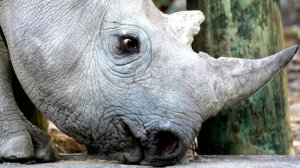Three landowners in Limpopo that protect black rhinos and lions are set to benefit from tax incentives.
This is part of the biodiversity management agreements that were reached between the private owners and the Department of Forestry, Fisheries and Environment (DFFE). The agreements are the first of their kind for South Africa.
The agreements will be valid for five years and require that specific plans to protect the species are implemented, the DFFE said in a statement.
"These are the first BMAs (biodiversity management agreements) to be developed and implemented in South Africa. These agreements offer unique biodiversity tax incentives for the landowners in terms of the Income Tax Act."
The department explained that in June 2020, the Wilderness Foundation Africa (WFA) – a conservation organisation – approached it to put forward the possibility of a tax incentive related to conservation. Together with the Sustainable Finance Coalition, a tax incentive investigation incubator was launched to determine how this might work.
The Sustainable Finance Coalition focuses on addressing the financial needs of conservation efforts.
A pilot project was launched in 2022 to test the tax benefit for the purpose of protecting the southern black rhinoceros and African lion conservation – given that there are biodiversity management (conservation) plans for these species.
A person who enters into a Biodiversity Management Agreement qualifies for a tax deduction in terms of the Income Tax Act, the department said.
"The landowner is required to carry out numerous conservation-related measures and be responsible for any costs related to the management of the animals," the department said. The costs can be reclaimed as a deductible amount from their taxable income.
The owners must also submit annual reports on the progress and implementation of the Biodiversity Management Agreements to Forestry, Fisheries and Environment Minister Barbara Creecy.
The existing biodiversity management plans for both the black and white rhino and the African lion are being reviewed, the department said. Once the review is concluded the biodiversity management agreements will also be updated.
News24 recently reported that the critically endangered black rhino's numbers had grown by 200 since the Black Rhino Range Expansion Project was launched in 2003. The project involved relocating more than 230 rhinos and created 15 new black rhino populations in South Africa and Malawi.
As a result, more than 200 rhino calves were born, News24 reported.
The rhino population on the African continent at the end of 2022 was nearly 23 300, according to the International Union for Conservation of Nature. South Africa is home to nearly 80% of the world's rhinos.
EMAIL THIS ARTICLE SAVE THIS ARTICLE
To subscribe email subscriptions@creamermedia.co.za or click here
To advertise email advertising@creamermedia.co.za or click here











